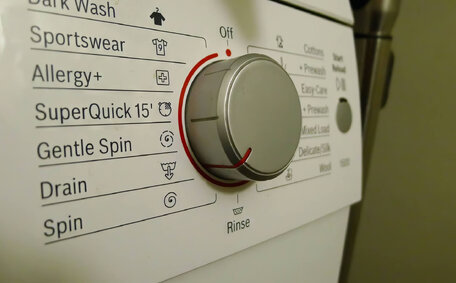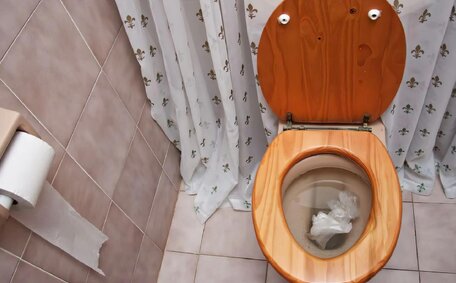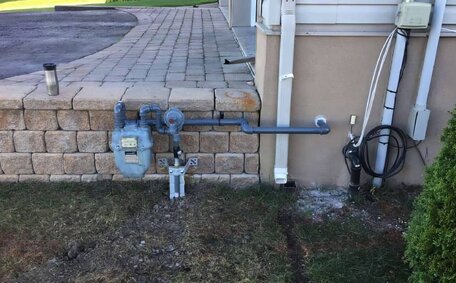Understanding Sewage Backups: Causes and How They Happen
Sewage backups can severely damage your home, including basement areas, leading to significant disruption and unsanitary conditions. Sewage backups occur when wastewater cannot flow properly through the sanitary sewer system, causing a reversal and potential overflow into properties.
Several key factors are often behind sewer backups:
- Tree roots – Invasive roots from trees and shrubs can cause blockage by growing into your sewer line, accounting for nearly 50% of all sewage backups.
- Grease build-up – Grease and fats poured down your drains can clog your pipe walls over time, narrowing passages.
- Foreign objects – Flushing inappropriate items like diapers or paper towels can cause sewage backups when they get caught in pipes.
Sewage backups are a growing concern, with failures in the sanitary main lines causing over 23,000 reported incidents annually in the U.S. Part of the issue is that many main lines are decades old, and when they fail, sewage backs out your property’s drainage system.
Comprehending the reasons behind sewer backups is crucial for implementing effective preventative measures.
Preventing Backups Through Proper Disposal Habits
Understanding what causes sewer backups in your main sewer line is crucial, as understanding and adopting proper disposal habits is key to averting potential catastrophic sewer backup events. It’s crucial to be mindful of what you wash down the drains, especially avoiding pouring grease and cooking oil down the toilet. Grease, fats, oils, and non-biodegradable items should never be poured down drains or flushed, as these substances are common culprits behind sewage backups.
Learn more about sewer and what to avoid putting down any drain:
- Grease or oil
- Egg shells
- Coffee grounds
- Produce stickers
- Hair
- Kitty litter
- Diapers
- Cigarette butts
- Paper towels or tissues
Avoid flushing anything other than toilet paper and human waste, and be careful with what you put into your garbage disposal and kitchen drains. Improper disposal habits, particularly with food waste, can overwhelm sewer systems, potentially causing waste to back up into properties.
Installing Backwater Valves and Other Preventative Measures
A key strategy to prevent sewage backups is installing a backwater valve, which permits outflow of wastewater but prevents backflow from the municipal system.
To effectively prevent main sewer backups, consider installing backwater valves and other measures such as:
- Regular sewer line maintenance can also target drain clog prevention by including thorough drain cleaning
- Using drain traps to collect debris
- Waterproofing your home can include reinforcing basement walls and incorporating drains other flood control systems into the basement floor
- Installing overhead sewers or enhancing your sump pumps with a reliable backup system
- Repairing cracks or root damage in sewer pipes
Proactive preventative plumbing significantly reduces the likelihood of encountering the mess and headache of a sewer backup. Installing backwater valves and maintaining drains optimises sewage flow and preemptively addresses potential backup issues.
Maintaining Your Home Sewer System
The optimal defence against clogged and backed-up pipes is consistent maintenance of your home’s sewer system. Scheduled professional drain cleanings, typically every one to two years, are recommended to clear any buildup. Older sewer systems, in particular, benefit greatly from regular maintenance.
There are also simple steps you can take between professional services:
- Check your clean out points yearly and ensure they are still accessible. Use a drain snake to clear any debris found.
- Monthly flushing of toilets and septic systems with hot water and baking soda aids in breaking down oils and maintaining clear pipes.
- Regularly trim trees and shrubs to prevent root growth from damaging your sewer lateral pipe. Root intrusion is a leading issue that may push debris into sewer lines, causing damage and blockages.
- Ensure downspouts and gutters are positioned so that water around your property can drain away from your yard, reducing ground saturation.
Regular maintenance of ageing pipes can extend their life and prevent backups that could affect your family’s home. You can do much to protect your home and family by making sewer upkeep a priority.
What To Do During a Sewage Backup Emergency
Immediate action is crucial if sewage contacts your property due to significant health hazards. As raw sewage contains bacteria, viruses and mould, make sure to wear rubber gloves, goggles and protective clothing when addressing the issue.
In the event of a minor backup confined to your floor drain or non-living spaces, promptly assess each drain’s functionality:
- Turn off electricity and gas supplies when your sewage has reached outlets or appliances.
- Call your professional plumbers right away to troubleshoot and resolve the issue.
- Block the drain with towels or mats to limit further overflow into your home.
In the case of major backups affecting living spaces, like sewage backup in the basement or flooding over 1 square metre, evacuate your home and contact emergency services. Avoid attempting to clean large amounts of sewage - the significant health risks require proper training and equipment.
For prompt assistance with sewage backups in the Padstow area, please call the professionals at Padstow Plumbing on 1300 349 338. With over 10 years of local experience, we can handle the tools and expertise to address your emergency plumbing needs.
Seeking Professional Help for Inspections and Repairs
When it comes to your home’s plumbing, seeking professional help for inspections and repairs is highly recommended. Plumbing systems involve complex networks of pipes, joints, valves and plumbing fixtures that require expert knowledge to properly assess and service.
The team at Padstow Plumbing has over 10 years of local experience diagnosing and repairing all manner of plumbing issues. From routine inspections and maintenance to emergency callouts, we have the skills and equipment to get your plumbing back in working order.
Early signs sewer trouble may include an array of symptoms calling for professional attention:
- Low water pressure
- Leaky pipes
- Strange noises from pipes
- Faulty toilets or taps
- Sewer gas smells
Catching problems early is key - minor issues left unattended can easily escalate into major headaches down the track. Our licenced technicians will thoroughly inspect your plumbing and recommend what to do when optimising functionality and longevity.
We offer a range of maintenance and repair services, including:
- Camera inspections of your drain line and sewer lines
- Hydro jetting to clear obstructions in your sewer drain
- Trenchless sewer repairs without excavation
- Full replacements of ageing pipe systems
- Annual maintenance plans
Don’t wait until you have an emergency on your hands - book an inspection today by calling Padstow Plumbing on 1300 349 338. With regular professional servicing, you can avoid destructive plumbing disasters and safeguard your property from water damage.
Understanding Your Insurance Coverage
In the event of a sewage backup, especially in the basement, insurance can alleviate the financial strain of repairs and restoration. However, standard homeowners or renters insurance policies generally exclude damage from sewer or drain backups.
It is important to review your policy or speak with your insurance agent to confirm coverage for sewage-related events, including standing water from backups.
Coverage for sewage backups is usually available as an optional add-on rider to your policy, for an additional premium. If you don’t currently have this supplemental coverage, consider adding it - the one-time cost of the rider could save you thousands down the road if a backup occurs.
Our experienced plumbers at Padstow Plumbing have assisted numerous locals with insurance claims after plumbing emergencies. We can evaluate your circumstances, document the service provided, and coordinate with insurance companies for you. Please call us on 1300 349 338 if you need assistance understanding your options or navigating the claims process after an unfortunate sewage incident.
Fostering Community Sewage Backup Prevention
Sewage backup prevention requires collective effort from individual homes and the community at large. While proper disposal habits at home are crucial, initiatives at the municipal level also play an important role.
As a concerned resident, there are a few ways you can help foster community-wide backup prevention:
- Promote awareness of proper disposal practices via conversations with neighbours, social media, and community boards.
- Support local "fat-free sewers" campaigns that educate about keeping fats, oils, and grease out of drains.
- Advocate for proactive sewer maintenance measures in your area, like modernisation of ageing pipes.
Collaborating with expert plumbers like Padstow Plumbing enhances community initiatives:
- We offer free educational resources and sewer care workshops.
- We stay up to date on the latest methods and technology to optimise sewage systems.
By working in unison, we can all play a part in maintaining a robust drainage infrastructure and preventing devastating sewage backups. Reach out to us on 1300 349 338 to join in building community resilience against sewage backups.






